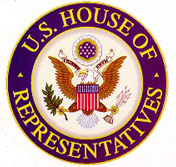|
I have talked a lot lately about black land loss and the
various unscrupulous ways African Americans lose their
property. There is a
modern day, pervasive chapter in this saga that often sneaks under
the radar screen.
Have you ever received an unsolicited call from a mortgage
lender offering you an opportunity to consolidate your debts and
lower your monthly payments?
Surely, you have received junk mail offering you a similar
opportunity.
The economic downturn
and rising unemployment have made conditions ripe for lenders who
prey on folks desperate to find a way out of their mounting debts --
home mortgages, car payments, credit card debt, student loans,
medical bills and the list goes on and on. It sounds enticing when
homeowners are offered a consolidation loan, especially for those
who have bad credit and cannot obtain a loan from a traditional
lending institution.
These non-traditional, second mortgages carry interest rates
and fees that are astronomical. These loans seemed designed
to set the borrower up for failure, and in the end the homeowner
loses his or her property.
And these loans are marketed in large part to minority
communities.
During my first term in Congress, we passed the Home Ownership and
Equity Protection Act of 1994 to help regulate lenders who prey on
those with an inability to meet the obligations of these loans. The 1994 amendment to the
Truth in Lending Act does not limit the interest rate and loan fees
that lenders may charge.
Instead it imposes a three-day “cooling off” period for
borrowers to review the terms; prevents balloon mortgages for loans
with terms less than five years; bars penalties for paying the loan
off early; prohibits lenders from giving loans to borrowers who
cannot demonstrate the ability to meet the scheduled payments; and
gives borrowers the right to rescind the loan if the lender violated
any of these new regulations or did not provide the correct
disclosures.
This legislation is woefully inadequate to protect the
consumer. It was
written in a way that would make it acceptable to the financial
interests involved in these lending practices. I understand that there is a
great need for credible lenders to provide loans for people who have
poor credit, and there is an added risk involved in making funds
available to this market.
However, some lenders are taking advantage of loose
regulation of these loans, which in many cases results in
foreclosure when borrowers are unable to meet their
obligations.
I have witnessed traditional lenders like Fannie Mae,
mortgage companies and local banks work together to provide lower
interest, conventional mortgages to African Americans with weak
credit histories. They
have come together through the Congressional Black Caucus’ WOW (With
Ownership, Wealth) initiative to help us meet the goal of adding one
million new blacks to the homeownership roles by 2005. Despite the strides the CBC
is making to grow African American homeownership, our efforts are
being undermined by government-condoned predatory lending
practices.
This issue is gaining attention of lawmakers on the state
level, but I believe it is time to revisit it federally as
well. There are several
pieces of legislation that have been introduced to address predatory
lending, but no action has been taken. I support the Predatory
Lending Consumer Protection Act of 2002 that would add amend the
Truth in Lending Act to cap loan fees; disclose to borrowers the
high interest rates and the availability of lower interest rate
loans; and provide borrowers with credit counselor contact
information.
As a nation, we are just coming to grips with illegal
predatory practices in the insurance industry that have overcharged
African Americans on their premiums for decades. We must now begin to address
predatory lending practices that overwhelmingly affect blacks by
instituting laws that will make what are already unethical practices
illegal. If not, the
government will continue to be a partner in yet another tragic black
land takings saga.
# # # |
 U.S. Congressman
U.S. Congressman
 U.S. Congressman
U.S. Congressman

